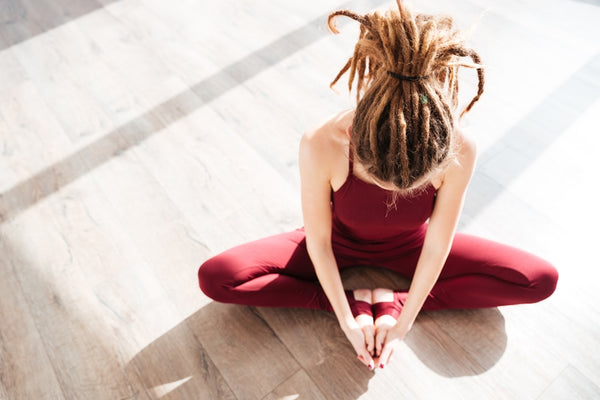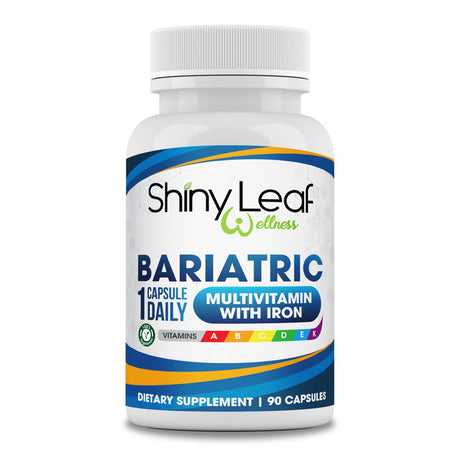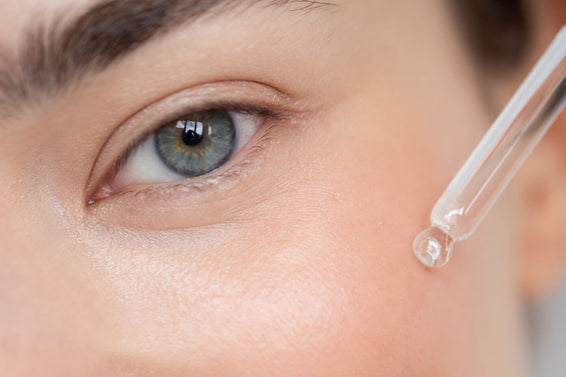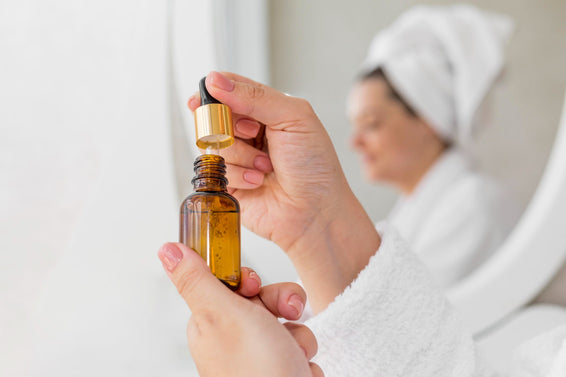Hair Loss
Hair loss is a common issue among men and women. Hair is your crowning glory and hair concerns can affect your self-esteem. Know how to prevent and stop hair fall with great tips from our guide to effective hair care.
Here is information on how hair loss happens, its symptoms, and ways to prevent it from happening. Discover products and other tips for methods that can restore the health of your hair.

How Hair Loss Happens
While men are more likely to experience hair loss, women and children are affected by this condition as well. Hair fall is a common thing, but just because you see falling hair when you brush or shower, doesn’t mean that you have hair loss. You lose about 100 strands of hair every day. However, when clumps of hair fall out, it is a sign that you need to take seriously. There are symptoms even during the early stages that can warn you.
Symptoms of Hair Loss
Hair loss is a condition that worsens without proper care. Preventing hair loss at its early stages is important. It helps curb hair loss and restore the health of your hair. These are the common symptoms of hair loss:
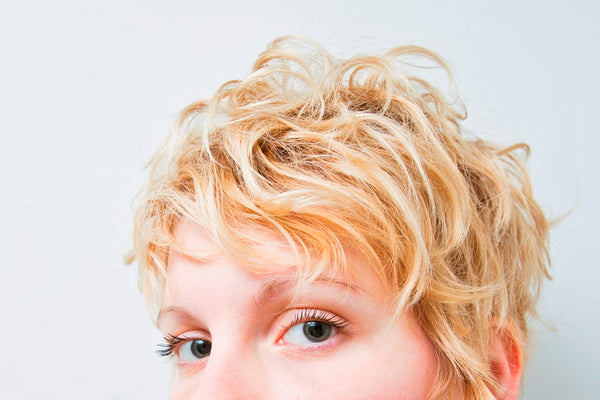
- Thinning Hair - Thinning hair happens when there are not enough proteins to support the growth of healthy hair. This symptom refers to the condition of the individual strands and the volume of hair. Thin hair strands are weak and brittle. This makes them fall or break easily, which causes the loss of hair volume. When you brush your hair and clumps of hair fall out, this is a sign of hair loss.
- General Hair Loss - General hair loss happens when you notice thinning of hair all over the scalp. There are no certain areas affected by general hair loss, however, it is very evident in the hairline and crown of the head. It can happen in any areas of your scalp. General hair loss can be due to vitamin deficiency, stress, or the use of harsh products on the scalp.
- Focal Hair Loss - Focal hair loss happens in any area of the scalp. Unlike general hair loss, it can occur in places that are not the hairline or the crown of your head. Focal hair loss is often associated with alopecia. This sign of hair loss shows patchiness or bald spots on the scalp.
Causes of Hair Loss
Hair loss can happen to anyone, but older men and women are more affected by this condition. Hair loss can be hereditary, which is a common cause of this hair concern. However, there are other causes of hair loss. You can address these causes early on to restore the health of your hair. The following are common reasons for hair loss:
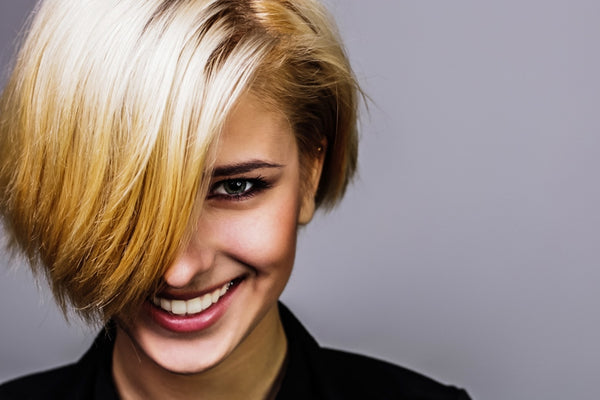
- Vitamin and Mineral Deficiency - There are nutrients that are responsible for stimulating the growth of hair. When you lack in these nutrients, it does not only cause stunted hair growth but hair loss as well. Deficiency in vitamins B, C, and D causes hair loss. Minerals such as zinc and iron are essential for hair as well. They are important for growing and nourishing hair strands. Eat food that has high levels of these vitamins and minerals.
- Hormonal Imbalance - Hormonal imbalance affects hair and scalp in a lot of ways. Thinning hair and general hair loss can be results of hormonal imbalance. Dandruff is also another effect of this condition. Too many hormones or the lack of it can trigger hair loss. Hormonal imbalance disrupts body functions. The body tends to overlook noncritical functions such as hair growth and reserves its energy to more important functions of the body. This leads to stunted hair growth and falling hair. Try to regulate your sleep, have a healthy diet, and exercise often.
- Health Conditions - Health conditions that can cause hair loss include thyroid disease and alopecia. Scalp infections that cause scarring leads to hair loss as well. Medications can trigger hair fall too. If you’re taking medications for any health conditions and suddenly experienced hair loss, consult doctors.
- Stress - Stress and anxiety affect the growth and health of hair. When you’re under stress often, you might notice hair loss happen. What happens when you’re stressed is it forces hair follicles in a resting phase, which causes hair loss. This might happen temporarily, as long as the body is under stress. Alopecia areata is another condition that can be traced back to severe stress. This is a condition where your immune system attacks the hair follicles. Stress management is important to prevent further hair loss.
- Use of Harsh Products - Harsh products that you apply to scalp and hair can cause hair loss. Dyes and other chemical treatments damage hair and make it brittle. Brittle and weak hair is easy to break. Gels and other types of hold styling products can cause this to happen as well. Alcohols, detergents or harsh surfactants tend to damage hair follicles and trigger falling hair. Essential oils help soothe scalp to improve its health. Here's how you can use essential oils for hair and scalp.
READ MORE: Essential Oils Guide
Well-Known Treatments for Hair Loss
There are ways to stop hair loss and stimulate the healthy growth of hair. To know which treatments suit you best, first determine the cause of hair loss. It helps you know the root of the problem and address it. Treating hair loss may require you to use products, take medicines, or opt for the most effective solution - hair transplant. Here are the various ways to treat hair loss:
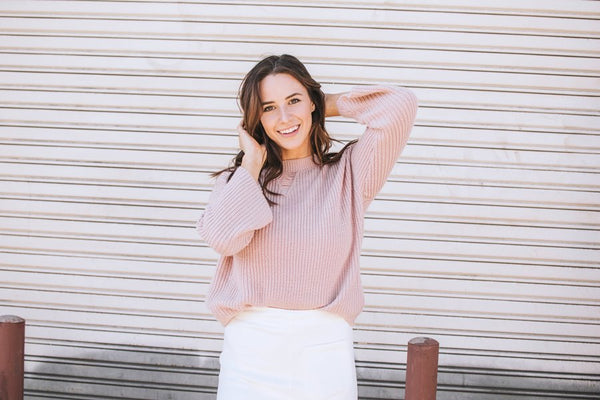
Medicine
Medicines are best used to treat conditions such as psoriasis, eczema, and alopecia. They are used topically and applied to affected areas. These medicines have soothing effects that alleviate the symptoms of these conditions to promote hair growth. Some medicines are taken orally to treat hair loss from within.
Medicines are mostly for treating certain conditions that cause hair loss. If the cause of your hair loss is not due to any health condition, refrain from taking any medicine. Consult a physician to know how you can deal with hair loss effectively.
Hair Transplant
Hair transplant is a treatment option for those who have permanent hair loss or scarring alopecia. When there are no hair follicles to grow hair from, see if you can have a hair transplant. This works by transplanting hair follicles to areas of the scalp. The transplanted hair follicles come from a part of the scalp that is resistant to hair loss. This ensures that there are fewer risks of encountering hair loss in the future.
It is a minimally invasive procedure, which only affects the scalp. It can also be used for eyelashes, brows, beards, and chest hair. Patients often include those who have scars on the scalp or those who have pattern baldness.
Anti-Hair Loss Products
There are medicated hair products and organic products that you can use for hair care. The difference is that medicated products have a specially designed formula that targets the root of the problem. Organic products, on the other hand, use ingredients that provide therapeutic effects to the hair. Both products deliver nutrients that can stimulate healthy growth of hair.
You can get anti-hair loss products anywhere including drugstores and supermarket. Anti-hair loss products nourish, condition, and protect hair from damage. Gentle products like Castor Oil Shampoo and Conditioner that rescue hair from hair damage and reduce risks of hair loss. Discover more benefits of using these products here:
READ MORE: Castor Oil and Shampoo Conditioner
Natural Remedies to Treat Hair Loss
For minor cases of hair loss, there are natural remedies that you can do. If the cause of your hair loss is a vitamin deficiency, stress, or use of harsh products, you can do these methods. Easy, budget-friendly, and healthy for the body – try these remedies to get lustrous and thick hair!
Balanced Diet
Hair loss due to vitamin deficiency can be managed by having a healthy and balanced diet. Make sure to include food abundant in vitamins B, C, and D, in your diet. Meat and other vegetables that contain high amounts of iron and zinc are necessary as well. Protein-rich food such as eggs and dairy will help stimulate the growth of hair. Avoid greasy food and carbonated drinks because they can inhibit hair growth.
Supplements
Take supplements that come in pills, liquids, or oils. These supplements are concentrated nutrients that help provide necessary nourishment to the body. They help regulate the functions of the body related to hair growth. Supplements prevent deficiencies in vitamins and minerals as well. Essential oils are supplements that are safe and healthy for the body. They provide therapeutic effects that promote healthy hair growth.
Hair Masks
Hair masks soothe the scalp while stimulating the blood flow on this area. This helps strengthen and improve the health of hair follicles. Hair masks moisturize and condition hair as well. You can get hair masks from hair brands or make one yourself. There are DIY recipes that use ingredients you can find in your kitchen.
Learn more about the benefits and uses of hair masks. Here are other hair products that you can use to prevent hair loss from happening!
READ MORE: Hair Care
Tips to Prevent Hair Loss
Tired of getting hair in your brush or blocking the drain? You can stop hair loss by being happy, healthy, and stress-free. Try these easy tips that can prevent hair loss:
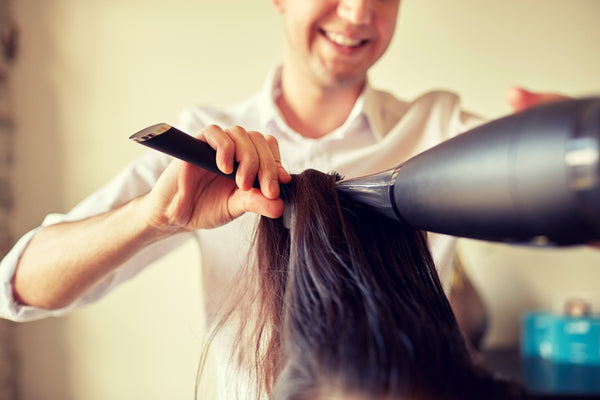
- Look out for products that contain harsh chemicals. This includes dyes, hair bleaching products, and chemical treatments. They can damage and weaken hair.
- Limit the use of cleansers to three to four times a week. It helps retain the natural moisture on the scalp, which is necessary for preventing weak hair.
- Avoid using high heat to style hair. Too much heat can break the cuticles and the shaft of hair. Frequent use of styling tools that use heat can make hair brittle and damaged.
- Avoid hairstyles that are too tight or painful on the scalp or hairline. This weakens the hair follicles and leads to hair loss.
- Trim your hair regularly. Trimming your hair controls damage such as split ends. This prevents the damage from reaching the roots of your hair.
- Sleep for 6-8 hours daily. The body repairs itself when asleep. Sleeping also helps the scalp and hair recover from damages.
- Use hair products that use nourishing natural ingredients. They provide nourishment that strengthens hair. Products with essential oils such as Argan oil strengthen hair to prevent breakage and hair loss. Find out how it helps nourish hair and visit this page.
The most important tip that you need to do is to always treat your hair with gentleness. Hair reacts positively to gentleness. It is a nurturing act that gives you healthy and lustrous hair. Practice these tips and methods to wake up to long and lush hair tomorrow!



